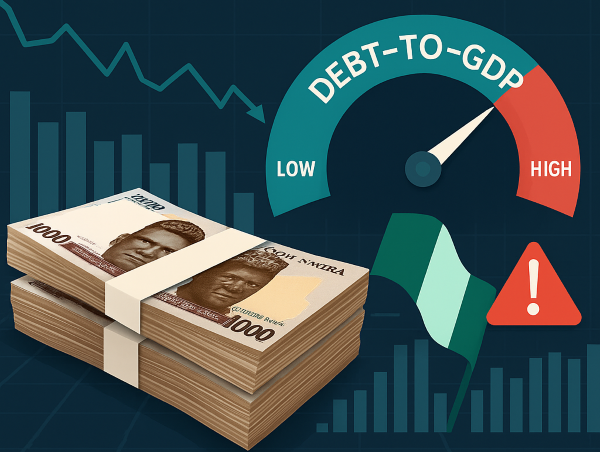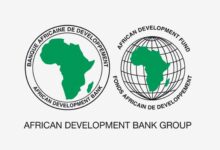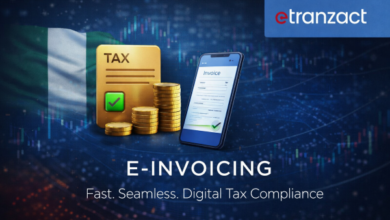Nigeria’s Mounting Debt Worries Experts as Borrowing Surges Despite Revenue Growth Claim

Nigeria’s public finance narrative is once again under scrutiny as rising government borrowing collides with claims of improved revenue performance, amplifying public anxiety and raising critical questions about fiscal sustainability, debt transparency, and long-term economic stability.
Fresh concerns intensified after the National Assembly approved President Bola Tinubu’s request to secure ₦1.15 trillion in new domestic borrowing to help fund the widening deficit in the 2025 Appropriation Act. The approved budget, now at ₦59.99 trillion, is the largest in Nigeria’s history and represents a significant ₦5.25 trillion expansion from the earlier proposal.
Yet, beneath the ambitious spending plan lies a deeper economic dilemma: Nigeria’s total budget deficit has ballooned to ₦14.10 trillion, and ₦12.95 trillion of that is slated to be financed by debt—either domestic or external. For many Nigerians, this trend signals not resilience, but a troubling drift toward chronic reliance on credit.
A Debt Mountain That Keeps Rising
New data from the Debt Management Office (DMO) reveals a stark picture:
Nigeria’s total public debt hit ₦152.4 trillion in June 2025, split between:
- ₦71.85 trillion – external debt
- ₦80.55 trillion – domestic debt
The upward trajectory—driven by deficits, currency adjustments, and fresh borrowing—has raised nationwide concerns, especially as government officials continue to defend the pace of indebtedness.
Senator Olamilekan Adeola, Chairman of the Senate Committee on Appropriations, noted that most new loans were already “embedded” in the Medium-Term Expenditure Framework (MTEF) and the 2025 Budget.
Senator Sani Musa added a global argument, insisting that “no economy grows without borrowing.”
But, as multiple economists argue, borrowing is not the issue — what matters is what the debt funds.
Experts Warn: Debt Service Is Spiralling Beyond Safe Limits
For many economic analysts, the warning bells are loud.
Dr. Muda Yusuf, CPPE CEO
Yusuf, one of Nigeria’s most respected private-sector economists, warned that debt service has overtaken capital expenditure, a destructive imbalance for any developing economy.
He stressed:
- Over 80% of government revenue now goes into debt servicing
- Nigeria risks crowding out essential government spending
- Borrowing is increasingly funding recurrent items rather than capital projects, undermining growth prospects
“This is not sustainable. Nigeria is spending beyond its means,” he cautioned.
BudgIT’s Deputy Country Director, Vahyala Kwaga
Kwaga echoed concerns, warning that Nigeria may be creeping toward breaching its debt sustainability threshold.
He also challenged the government to publish comprehensive audits and impact assessments of earlier loans, arguing that public mistrust is growing because Nigerians don’t see tangible results.
Bismarck Rewane, CEO, Financial Derivatives Company
Rewane highlighted an often-ignored consequence:
- Excessive local borrowing drives up interest rates
- Higher interest rates restrict credit access for businesses
- Private sector expansion suffers, and inflation accelerates
He described the government’s rising dependence on domestic debt as a “crowding-out danger” capable of hampering job creation and private investment.
DMO Insists: Nigeria Is Still Within Safe Territory
Amid public anxiety, the DMO maintains a calm outlook.
Director-General Patience Oniha, speaking at the Nigerian Economic Summit, argued that Nigeria’s debt profile remains sustainable, citing a debt-to-GDP ratio of 40%, below the 70% benchmark for peer economies.
However, critics argue that GDP-based analysis masks Nigeria’s real vulnerability, as revenue is the weakest link. With revenue-to-GDP still among the lowest globally, the ability to repay debt—not GDP size—is the true risk indicator.
The Bigger Question: Can Borrowing Fuel Development?
Nigeria stands at a fiscal crossroads. While the government insists borrowing remains essential to fund infrastructure, reforms, and social investments, citizens and experts worry that:
- Debt is rising faster than revenue
- Borrowing is funding consumption, not growth
- Debt servicing is crowding out social and economic priorities
- Transparency around loan utilisation remains weak
- The private sector is being suffocated by aggressive domestic borrowing
Without a clear framework to grow revenue, cut waste, reform public spending, and redirect borrowing toward productive assets, Nigeria risks drifting deeper into a fiscal quagmire.
As 2026 approaches, Nigerians are asking tougher questions:
What exactly are we borrowing for — and who will bear the long-term cost?












